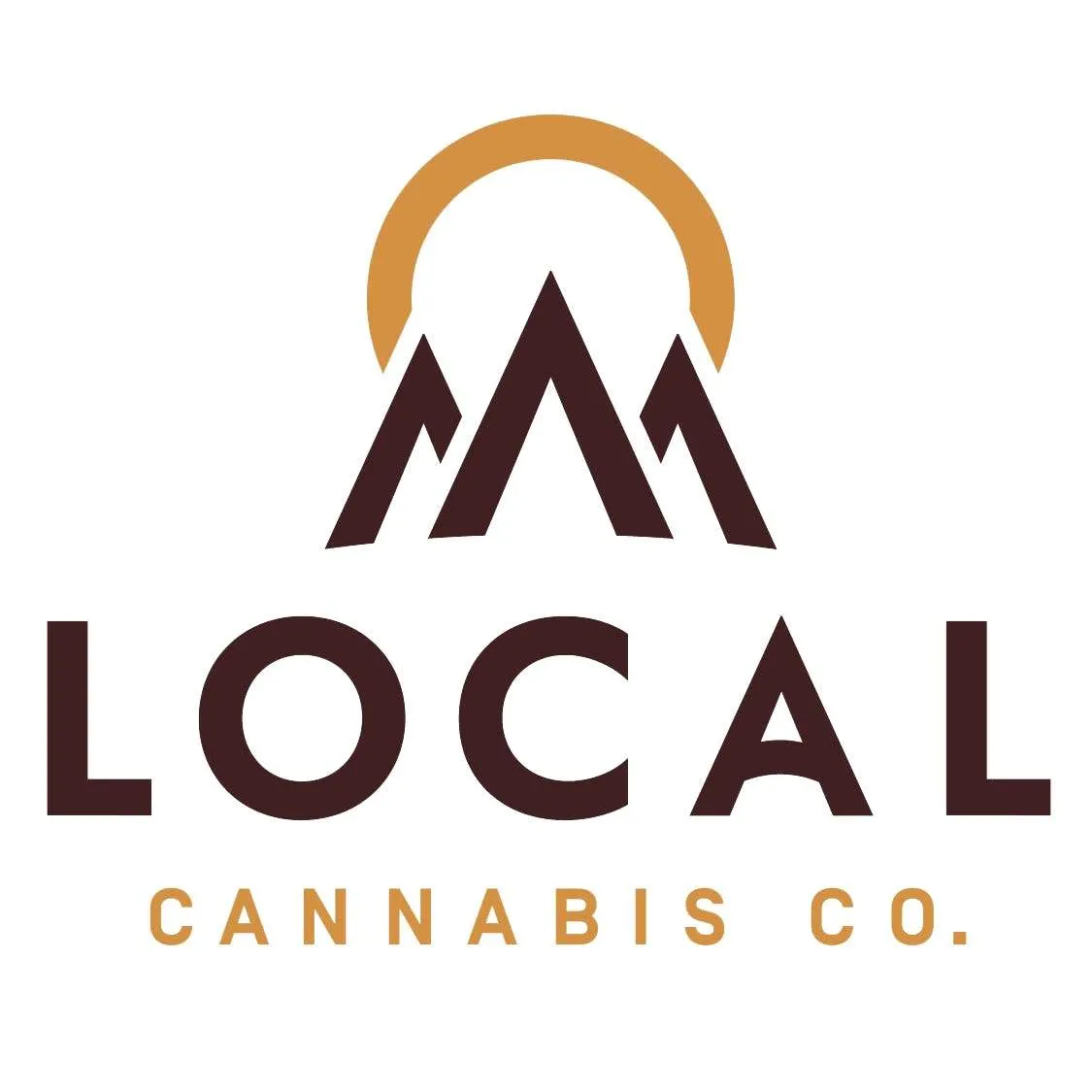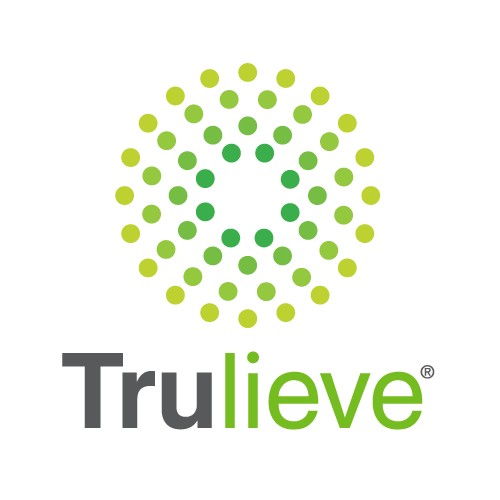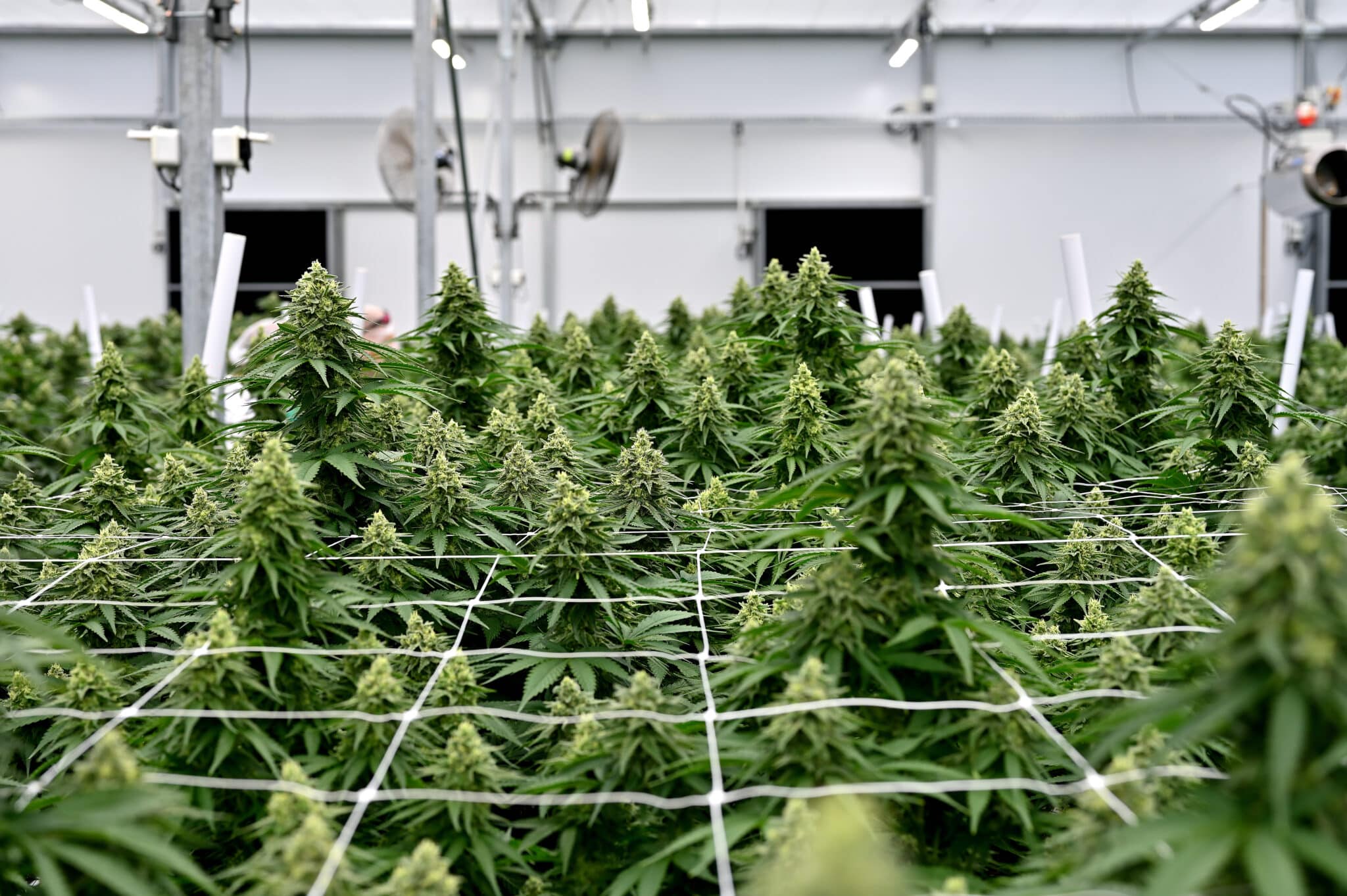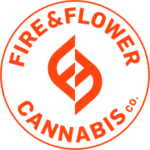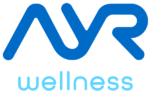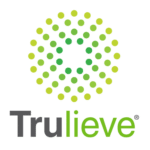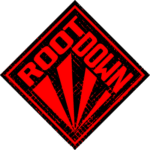Smart Responsible Vendor Training (RVT) "Up-Levels" Workforce Development & Ensures Cannabis Compliance Is Simple
Turn-Key Responsible Vendor Training (RVT) Makes Compliance Simple & Since Traditional Responsible Vendor Training (RVT) Programs Are BORING We Went Ahead & Fixed That Too

Made For: Dispensary Technicians Delivery Drivers Dispensary Managers Cannabis Consultants Retail Sales Associates Inventory Specialists Compliance Officers Customer Service Product Demonstrators Processing Technicians Cultivation Agents Government Compliance Retail Supervisors Team Managers Industry Professionals
Smart RVT Programs That Makes Cannabis Compliance SIMPLE & Automates Training, Records & Reduces Risks
Working with cannabis involves many risks, but having smart Responsible Vendor Training (RVT) provides developers the foundation of cannabis compliance programs and it’s an “un-fun prerequisite” required before handling any form of cannabis.
Failure to act responsibly and proactively could result in fines, imprisonment, suspension of licenses, increased insurance costs, or getting shut down, so smart RVT programs prepare the cannabis workforce to handle all those potential risks.
At the end of the day, we’re in the “business of compliance” and lucky to “work with cannabis”… this is the cornerstone of our smart RVT programs that’ll reduce risks, ensure compliance & increase profitability ($$$) to ensure success in our industry.
Navigation Menu
Responsible Vendor Training
Learning Plans Are Meticulously Structured Roadmaps That Guide You Through A Sequential Order For Cannabis Competencies via "Formulated Body of Knowledge" (BOK) Based On Industry Standards.
- Accredited Provider
- Nationally Recognized
- State Provided
Responsible Vendor Accreditation
Our Acclaimed Status As "The Most Accredited" Responsible Vendor Training (RVT) Provider Exhibits Our Educational Commitment That'll Ensure Full Cannabis Compliance With Government Requirements.
Alaska
Marijuana Handler Permit Training
Alcohol & Marijuana Control Board (AMCO)
Authorized: AMCO-Approved
Alabama
Employee & Management Training
Medical Cannabis Commission (AMCC)
MCC Authorized: PENDING
Colorado
Responsible Vendor Training
Marijuana Enforcement Division (MED)
MED Authorized: #RV-00034
Illinois
Responsible Vendor Training
Department of Financial & Professional Regulation (IDFPR)
Authorized: IDFPR-Approved
Maryland
Responsible Vendor Training
Cannabis Administration (MCA)
MCA Authorized: #0124-001
Massachusetts
Responsible Vendor Training
Cannabis Control Commission (CCC)
MCC Authorized: #DCC462233
Mississippi
Cannabis Worker Certification
Department of Revenue (MDOR)
Authorized: MDOR-Approved
New Jersey
Responsible Vendor Training
Cannabis Regulatory Commission (CRC)
CRC Authorized: PENDING
New Mexico
Cannabis Server Permit Training
Cannabis Control Division (CCD)
CCD Authorized: PENDING
New York
Responsible Vendor Training
Office of Cannabis Management (OCM)
OCM Authorized: PENDING
Ohio
Foundational Dispensary Training
Board of Pharmacy (BOP)
BOP Authorized: PENDING
Utah
Cannabis Worker Certification
Department of Food & Agriculture (UDAF)
Authorized: UDAF-Approved
Vermont
Responsible Vendor Training
Cannabis Control Board (CCB)
Authorized: CCB-Approved
Virgin Islands
Responsible Vendor Training
Office of Cannabis Regulation (OCR)
OCR Authorized: PENDING
Washington
Medical Cannabis Consultant
Department of Health (DOH)
Authorized: DOH-Approved
Washington D.C.
Medical Cannabis Certification
Alcoholic Beverage & Cannabis Administration (ABCA)
Authorized: ABCA-Approved
West Virginia
Cannabis Worker Certification
Office of Medical Cannabis (OMC)
Authorized: OMC-Approved
Authorized: AMCO-Approved
State Compliance Programs
Our Cannabis-Specific Compliance Programs Establish "Benchmarked Excellence" In Your Workplace That's Tailored Specifically For Each States' Cannabis Industry & Adheres With All Workforce Requirements.
California
30-Hour Cal/OSHA Training
Department of Industrial Relations (DIA)
California Business & Professions Code (Section 26051.5)
Michigan
Facility Employee Training
Cannabis Regulatory Agency (CRA)
Employees Training Requirements (R 420.602)
Missouri
Facility Employee Training
Division of Cannabis Regulation (DCR)
Employee Training Requirements (19 CSR 100-1.080)
Authorized: AMCO-Approved
Nevada
10/30-Hour OSHA Training
Department of Business & Industry (DBI)
Occupational Safety Training (SB122 - Section 11)
Washington
Cardiopulmonary Resuscitation Training
Department of Health (DOH)
Consultant Certificate Requirements (WAC 246-72-020)
Vermont
General Employee Training
Cannabis Control Board (CCB)
Employment & Training Requirements (Rule 2 - 2.2.5)
Federal Authorization
Steering International Standards, Our Compliance Training Showcases "Global Excellence", Meticulously Designed For The Cannabis Industry, Guaranteeing Your Workforce's Unwavering Regulatory Compliance.
ANSI
Cannabis Product Handler Certification
ANSI National Accreditation Board
ANAB Authorized: PENDING
ANAB
Responsible Vendor Training
Food & Drug Administration (FDA)
Occupational Safety Training (SB122 - Section 11)
EPA
Worker Protection Standard (WPS)
Environmental Protection Agency (EPA)
EPA Authorized Compliance Trainer
OSHA
10/30-Hour General Industry Training
Occupational Safety & Health Administration (OSHA)
OSHA Authorized Outreach Trainer
Canada Province Compliance
Steering International Standards, Our Compliance Training Showcases "Global Excellence", Meticulously Designed For The Cannabis Industry, Guaranteeing Your Workforce's Unwavering Regulatory Compliance.
Alberta
Cannabis SellSafe Staff Training
Gaming and Liquor Commission (AGLC)
ANAB Authorized: PENDING
British Columbia
Responsible Cannabis Service Training
Liquor & Cannabis Licensing (LCL)
Responsible Service BC
Manitoba
Responsible Cannabis Service Certification
Liquor, Gaming & Cannabis Authority
EPA Authorized Compliance Trainer
Nunavut
Retail Cannabis Employee Training
Liquor & Cannabis Commission (NULC)
OSHA Authorized Outreach Trainer
Newfoundland & Labrador
Responsible Retail Cannabis Certification
ANSI National Accreditation Board
ANAB Authorized: PENDING
Nova Scotia
CannSell Standard Certification
Nova Scotia Liquor Corporation (NSLC)
Occupational Safety Training (SB122 - Section 11)
Ontario
CannSell Standard Certification
Alcohol & Gaming Commission (AGCO)
EPA Authorized Compliance Trainer
Prince Edward Island
Retail Cannabis Employee Training
Occupational Safety & Health Administration (OSHA)
OSHA Authorized Outreach Trainer
Saskatchewan
Responsible Sales Certification
Tourism Saskatchewan Canada
ANAB Authorized: PENDING
Yukon
BARS Professional Certification
Yukon Liquor Corporation
Occupational Safety Training (SB122 - Section 11)
Team Management
Team Enrollments & Compliance Management Was BROKEN By Cannabis Training Providers (So We Fixed It)...

Enrolled Team Members
Team Leaders have the capability to access and review an up-to-date team rosters, including their contact information, progress in training, and unique enrollment codes. New members will automatically receive a notification email informing them of their enrollment. These new members are then placed into your group's user directory and occupy one of the seats; initial training status will be 'Not Started.' The Learner status will automatically update with course progress.

Team Management
Team Leader permissions allow the ability to view detailed reports on course progress, obtain team certificates, view quiz & learner data and assign leaders to delegate enrollments. From the Team Management page, team leaders can add/remove users from the group, directly email learners regarding training progress and deadlines, export bulk enrollment keys, import Excel/CSV file for adding employee information in bulk, and purchase more seats to "re-up" on the same team enrollments by clicking "Add Seats." All in one team dashboard.

Single-User Enrollment
Enter the user’s first name, last name, and email address to send them an email and notify them of their enrollment. Once that user registers, they take up a seat in the group, are enrolled in the group and can begin group courses. If you add a user that already exists on the site, the system will assign a key automatically, add them to the group, and allow them to start learning. This makes it easy to add new hires quickly via email so they can start training to your team's standards.

Bulk Upload Teams
Bulk Users can be added in bulk two ways:
1. Users > Add multiple from Dashboard
2. Users > Upload Users from a CSV file.
*Easy enrollment delegation provides ease for operators and a smooth learning experience for employees*

Team Email Notifications
Team Leaders can easily email all team members of their group based on their course status. Learners are sent the email via BCC, so team members will not see each others’ email addresses and leaders can email individual groups if they manage multiple teams. This assists in providing private communication and reports. Team Leaders may use this tool for deadline updates, crucial operational announcements and any communication needed for training or course updates.

Team Subaccounts
The head Team Leader can create, edit and delete subaccounts from the "My Account Page." A subaccount is an account with its own username and password, connected to the main company account. Permissions include : buy, view orders, offers, purchase lists, conversations, etc. It is also possible to enable company approval, allowing for subaccounts to place orders, but require approval from the main account. Permissions can always be updated, removed, or changed.

Payment Methods
Credit Card: Visa, Mastercard, American Express, Discover & More
Corporate Invoice: Net-30 Payment - For AP Processing
ACH/Bank Transfer: Preferred Method for Enhanced Security
Corporate Line-of-Credit (LOC): Allows Purchases on Credit

Order Approval
The subaccount order approval feature is ideal for company employee accounts. An admin can create subaccounts for the team or organization that they can control and set permissions for. Once a subaccount places an order for approval, the team leader will have to approve and pay for the order from their My Account Page. This is useful for managers that need to train more team members, don't have access to a current payment method or haven't been given purchase permissions.

Manage Permissions
When configuring a subaccount (My Account -> Subaccounts), a company account can set permissions for subaccounts. This is unique to each user, allowing permissions for varying employees. Select which employees can view order and payment history, need require an approval, and can have all-access to account subscriptions. This provides leaders with organized order tracking and recordkeeping amongst differing locations and employees for multi-state owners and retail operators.

Add Team Leaders
Managers can add Team Leaders to manage groups. This provides the opportunity for Team Leaders to track, view, and distribute enrollments to add the employees to learner teams. Leaders are notified of new sign-ups, can track training progress, and have access to download bulk certificates of completed assignments for recordkeeping. Team leaders have the same capabilities of the admin for delegating enrollments, tracking progress reports, and obtaining learner certificates.

Multiple Team Leaders
Add Team Leaders so they can view, follow progress & track team training. The Team Management page is where an admin can add and remove your Team Leaders. Similar to the Enrolled Users, the list displays current Team Leaders by first name, last name, and email. Teams can have as many Leaders as an admin assigns. This allows Managers, Shift Leads, and Supervisors to delegate and distribute any enrollments for varying locations, as well as have tracking organization for employees.

Learner Certificates
Team Leaders can download the team course certificates for employees that have already completed the certification. In addition, bulk team certificates can be emailed to a team leader in a zip file to download. Leaders can download and share certificates by scanning the unique QR Code, which will redirect to their unique Verification Page. This is a very useful feature for recordkeeping, as well as any compliance visits and an unexpected audit inquiries from state government regulators.

Certificate Downloads
Group Leaders can choose a set of certificates to download for a group, course or quiz. To generate certificates in the front end, go to your "Certificates" tab on the manager dashboard. Choose the certificate type and group. Click the Generate certificates button to start generating certificates and create a zip file of the PDFs. You will receive an email with a zip file containing the team certificates. This is helpful when reviewing yearly records or give employees a copy of their certificates.

Learner Progress Report
From the Certificates page, Team Leaders can download, share, or print the certificates that any team member has earned. These include both certificates attached to courses and certificates attached to quizzes. Once the learner has completed a course or a quiz with a certificate attached, a Certificate button will appear in the corresponding row to download. For Learners still "in progress," Team leaders can view which modules have been completed and what modules still need to be completed.

Search & Verify Certificates
The certificate verification page allows any students to directly find a certificate’s verification information by entering their unique certificate ID on the search field. This is useful if a user needs to digitally access or share their certification. The Unique ID on a learner certificate is crucial for government recordkeeping and compliance. This specific ID corresponds to the learner so an employer, the learner, and Green CulturED can ensure that compliance standards are being met.

Team Member Transcripts
Transcript column grants Group Leaders access to a student’s complete transcript. The Learner Transcript allows team leaders and learners to view their entire learning path progress, such as higher learning institutions implement. A printable transcript is available to generate and download a for the active learner. It’s an easy way for learners to see a consolidated view of their course progress. Some learners post their transcript on their LinkedIn or their resume when job searching.

Continuing Education Units
Continuing Education Credits Reports make it easy to track, manage and report on credits earned for learning activities. Assign credits, hours, CEUs or CPD values to your courses and award certificates, track compliance training, and report on the cumulative accomplishments of your learners—even those earned outside of Green CulturED. This report allows anyone with access to the page to look up completions. This is a great tool to show third parties verification of completion.

Custom Team Registration
Custom team links allow users to register themselves directly into a company team. By request, team leaders can contact Green CulturED to be provided with a unique registration URL that can then be shared with team members or embedded on a company's internal website. By registering on that page, learners are added directly to the associated team after registration. This makes it easy for employees to enroll themselves, rather than relying on team leaders to assign enrollments.

Team Communication
When a team order is created, a duplicate "social" group is also formed. Leaders and employees can communicate with ease when utilizing our private messaging and group feed and communications feature. Team leaders can send important updates like notifications about training deadlines and even message their onsite managers directly through the specified team portals. Groups are accessed by clicking on a user's name on the top right of the website and selecting the option "Groups."
Unified Cannabis Industry Standards
By unifying cannabis industry standards demonstrates it demonstrates how committed we are to helping assure the industry the use of safe, quality production methods and a safe work environment. Our curriculum is developed based on current standards established by the World Health Organization (WHO) by adopting Good Manufacturing Practices (GMP).
Using a formalized Body of Knowledge (BOK) refers to sources that’s not related to a single jurisdiction, allowing a truly international cannabis education covering standards developed through participation by representatives of all interested parties, transparent, consensus-based, and subject to appropriate due process mechanisms.
We offer a comprehensive, proactive approach to cannabis quality management through implementing cannabis-specific, detailed safety, process, design, and performance requirements based on existing international quality and safety guidelines in pharmaceuticals, nutraceuticals, food safety, and agriculture.
- Accelerate Innovation: Agree & understand common terminology & procedures.
- Support Innovators: Provide expert knowledge for further industry advancement.
- Exchange Knowledge: Build communities & support industry growth & development.
- Process Innovation: Promote high standards through a culture of growth & open communication.

Complicated Terminology Can Confuse Differences Between Standards, Regulations & Laws... Knowing What They Are & How They Interact Is Essential.
Our Subject Matter Experts (SME's) & Instructional Design Team Have Developed Curricula Implementing International Standards To Answer Unmet Training Needs In The Cannabis Industry That'll Protect Public Health, Consumer Safety & Safeguard Our Communities While Supporting Industry Growth.
Laws vs. Regulations vs. Standards
Industry Standards
Annual Compliance
Government Regulations
Cannabis Standards
Jurisdictional Laws
Industry Frameworks
American Herbal Products Association
Founded in 1982, the American Herbal Products Association (AHPA) is the national trade association and voice of the herbal and natural products industries. AHPA is comprised of more than 350 member companies, consisting primarily of domestic and foreign companies doing business as growers, processors, manufacturers, and marketers of herbal products.
In 2010 AHPA established a Cannabis Committee to under take the task of developing of national recommendations to regulators that address sensible regulatory practices for hemp and cannabis products. It engages in legislative advocacy, educational initiatives, and quality control standards to foster the integrity and sustainability of herbal.
AHPA aims to foster responsible and sustainable trade of herbal products, ensuring consumers can access a diverse range of safe goods with informed choices. Their vision is to make high-quality herbal products easily accessible and widely utilized by consumers. AHPA strives to promote consumer safety and awareness in the herbal product market. Ultimately, they seek to enhance the availability and usage herbal goods.
- Supplemental Knowledge: Empower your organization to unlock their full potential.
- Increase Efficiency: By streamlining operational processes and internal controls.
- Reduce Costs: by minimizing waste and reducing time spent on 'trial-and-error.
- Production Enablement: Scale with standardized solutions & increased productivity.

What Does AHPA Do in the Cannabis Industry? Being the Oldest Non-Profit Organization Specializing in Herbal Industry Service, the Association Focuses on Legislative & Regulatory Advocacy, Research, and Public Education to Support the Integration of Products into the American Lifestyle While Maintaining High Ethical Standards & Environmental Stewardship.
AHPA’s Members Represent The Growers, Processors & Manufacturers Of Herbal & Botanical Products In The Cannabis Industry.
AHPA Guidelines
Cultivation & Processing
Product Manufacturer
Cannabis Distribution
Laboratory Analysis
American Herbal Pharmacopoeia
The mission of the American Herbal Pharmacopoeia® (AHP) is to promote the responsible use of herbal medicines and ensure they are used with the highest possible degree of efficacy and safety. The primary way to accomplish this is through the development of standards of identity, purity, and analysis, as well as to review data regarding the efficacy and safety.
These works will be disseminated through a variety of AHP publications such as monographs, textbooks, and other educational materials; workshops and conferences; electronic media, and other avenues of distribution as are appropriate. AHP began developing monographs in 1994, and intends to produce 300 monographs on botanicals.
Once completed, these monographs, including many of the Ayurvedic, Chinese and Western herbs most frequently used in the United States, represent the most comprehensive and critically reviewed body of information on herbal medicines in the English language, and will serve as a primary reference for academicians and health providers.
- Provide Confidence: Ensure products imported or purchased will be safe & fit for customers.
- Cutting Costs: Lower the cost of compliance & the costs of non-compliance in regulated markets.
- Nurture Quality: Produce high-quality products & services that uphold your brand's reputation.
- Streamline Efficiency: Shorten the time-to-market for new products & categories.

What is the AHP? Established in 1995, the AHP is a non-profit organization with a mission to promote the responsible use of herbal products and medicines.
The AHP Produces Critically Reviewed Documents Called Monographs That Outline the Quality Control Criteria Needed for Ensuring the Identity, Purity & Quality of Botanical Raw Materials. Beyond Monographs, AHP Engages in Research, Education & Advocacy to Elevate Botanicals in Healthcare, Emphasizing Ethical Sustainability.
AHP Standards
Cannabis Monograph
Purpose
Analysis Methods
Standards
Therapeutic Compendium
Literature
ANSI/ANAB Cannabis Standards
The ANSI National Accreditation Board (ANAB) is the largest multi-disciplinary accreditation body in the western hemisphere, with more than 2,500 organizations accredited in approximately 80 countries. ANSI has long-term effort to support safety, quality, and consumer health amid the continued growth of the cannabis industry.
As part of the new program, ANAB will assess and accredit certificate programs as conforming to the requirements of ASTM D8403-21, Standard Practice for Certificate Programs within the Cannabis and Hemp Industries, developed by ASTM International’s Subcommittee D37.06 on personnel training, assessment, credentialing.
ANAB staff were members of this committee and provided significant input on the design of the standard. They facilitate the issuance of trusted, scientific results by assessed and accredited conformity assessment bodies and confidence in the quality and safety of the products and services that they certify. This is our service to our customers and stakeholders.
- Minimize Risks: Stay ahead of regulatory requirements with recognized industry standards.
- Improve Transparency: Enhance operability & reduce product trade costs using transparent practices.
- Promote Efficiency: Support innovation, so US operators can compete globally.
- Utilize Research: Overcome technical barriers by utilizing research-based standards.

The ANSI National Accreditation Board (ANAB) Provides Accreditation & Training Services to the Certification Body, Validation & Verification Body, Inspection & Laboratory Related Communities.
ANAB Assesses & Then Accredits Organizations to International & Domestic Standards & Requirements. ANAB Has Signatory Status Across Arrangements of the International Accreditation Forum.
ANSI/ANAB Accreditations
Certificate Accreditation
Certificate Programs
Testing Laboratory
Analysis Standards
Personnel Certification
Competency Frameworks
ASTM International Standards
ASTM International is an international standards organization that develops and publishes voluntary consensus technical standards for a wide range of materials, products, systems, and services. Over 12,000 ASTM standards operate globally. Combined with their innovative business services and certification offerings, they enhance performance and help boost confidence in products they buy and use.
ASTM standards promote focus on public health and safety, expand leadership position in the standards community, and broaden the international use of ASTM in the cannabis industry. This helps the cannabis industry attract and retain technical experts from around the world by a collaborative environment that meets industry needs.
Adopting ASTM standards ensures our curriculum will always be relevant to enhance the technical quality of standards and related content by providing a best-in-class, scalable development infrastructure. To create a truly international cannabis industry, we must understand global societal needs and service stakeholders through the integration of innovative education solutions.
- Meet & Exceed: Master best standards by with Good Manufacturing Practices.
- Enhance Quality: Ensure the marketplace has only safe products available.
- Scientifically Verify: Ensure your products & facilities adhere to the strictest industry safety standards
- Demonstrate Commitment: Uphold high standards for customer & patient health & safety.

The ASTM International Organization (Not-For-Profit & Non-Governmental) Develops Voluntary Consensus Standards & Defers To Appropriate Gov't Authorities To Determine Regulatory Framework Regarding The Control & Impact With The Cannabis Industry.
In a Short time, D37 has Emerged as the Global Leader in the Development of Cannabis & Hemp Standards & has Become the Trusted Industry Resource.
ASTM Accreditations
Cannabis Standards
Standards Development
Proficiency Testing
Hemp Flower (HFL)
Cannabis Training
Competency Frameworks
International Organization for Standardization (ISO)
International Organization for Standardization (ISO) is an independent, non-governmental international organization that brings global experts together to agree on the best ways of doing things. From quality management in the cannabis industry to Artificial Intelligence (AI), their mission is to make lives easier, safer and better – for everyone, everywhere. Standards define what great looks like, setting benchmarks for businesses.
Standards are the distilled wisdom of people with expertise in their subject matter and who know the needs of the organizations they represent – people such as manufacturers, sellers, buyers, customers, trade associations, users, or regulators. International standards ensure that the products and services you use daily are safe, reliable, and of high quality.
Implementing cannabis industry standards guides businesses in adopting sustainable and ethical practices, helping to create a future where your purchases not only perform excellently but also safeguard our planet. In essence, standards seamlessly blend quality with conscience, enhancing your everyday experiences and choices.
- Management Standards: Ensure quality among processes to reduce product failures.
- Environmental Standards: Learn procedures to help reduce environmental impacts & waste.
- Health & Safety Standards:Health & safety standards to help reduce accidents in the workplace.
- Societal Standards: Commitment to consumer and patient health and safety in the industry.

International Organization for Standardization (ISO) Is an Independent, Non-Governmental International Organization With a Membership of 170 National Standards Bodies. It Brings Together Experts to Share Knowledge & Develop Voluntary, Consensus-Based, Market Relevant International Standards That Support Innovation & Provide Solutions to Global Challenges & Bring Experts Together.
ISO International Standards
Quality Management
ISO Certification
Testing Laboratory
Consumer Safety
ISO Standards
Competency Frameworks
Good Manufacturing Practices
Good Manufacturing Practices (GMP) is the aspect of quality assurance that ensures that medicinal products are consistently produced and controlled to the quality standards appropriate to their intended use and as required by the product specification. The World Health Assembly accepted the first version of the Certification Scheme on the quality of pharmaceutical products.
GMP defines quality measures for both production and quality control and defines general measures to ensure that processes necessary for production and testing are clearly defined, validated, reviewed, and documented and that the personnel, premises, and materials are suitable for the production of pharmaceuticals and biologicals including vaccines.
Good Manufacturing Practices (GMP) and current Good Manufacturing Practices (cGMP) are, in most cases, interchangeable. GMP meaning the basic regulation promulgated by the US Food and Drug Administration (FDA) ensure that manufacturers are taking proactive steps to guarantee their products are safe and effective. cGMP, on the other hand, was implemented by the FDA to ensure continuous improvement in the approach of manufacturers to product quality.
- Quality Assurance: Ensure that manufactured products are designed and developed to meet the requirements.
- Cannabis Products: Aim to mitigate the risks that are inherent in the production process.
- Production Control: Sampling specification & testing to ensure that products are properly tested.
- Risk Management: Evaluation of the risk to quality is based on scientific knowledge to protect the patient.

The GMP Unified Standards for the Cannabis Industry Aim to Elevate Product Quality & Safety by Establishing Comprehensive Guidelines That Span Across All Key Facets of the Industry, Including Cultivation, Extraction, & Retail. These Standards Are Crafted to Be Proactive, Focusing on Quality Management Throughout the Production Process, Rather Than Solely Relying on Post-Production Testing. This Approach Not Only Enhances Consumer Safety but Also Promotes Operational Efficiency & Product Consistency Within the Cannabis Sector.
GMP Standards
Quality Team
Quality Team
Process Validation
Process Validation
Surprise Audits
Surprise Audits
Compliance Training
Compliance Training
Good Laboratory Practices
Good Laboratory Practice (GLP) is a quality system of management controls for research laboratories and organizations to ensure the uniformity, consistency, reliability, reproducibility, quality, and integrity of products in development for human or animal health (including pharmaceuticals) through non-clinical safety tests; from physio-chemical properties.
Good Laboratory Practices are put in place to protect the quality of laboratory data. In any pharmaceutical lab, Good Laboratory Practice is based on written documentation of the work being done. These are Standard Operating Procedures (SOPs). SOPs detail the different practices to follow for the purpose of cannabis quality assurance standards.
The main goal is to promote consistency across all practices in a laboratory setting. SOPs should cover the purpose of a procedure, the responsible personnel, and the step-by-step actions that need to be taken. With clear guidelines, labs can ensure transparency and accountability in the event of any production errors. It is essential that quality is not sacrificed at any production stage.
- Testing Data: Information that will help operate consistently while testing in an impartial manner.
- Quality Framework: Have an effective quality system for planning & assessing lab work.
- Quality Assurance: Control procedures to maintain accuracy & reliability of test results.
- Proficiency Test: Standard tests must be performed by the lab to obtain an initial permit.

Good Laboratory Practices Form the Bedrock Upon Which High-Quality, Reliable & Reproducible Laboratory Work Is Built. By Adhering to These Principles, Laboratories Can Assure Stakeholders of the Integrity & Reliability of Their Data, Thus Contributing to the Advancement of Scientific Knowledge & the Development of Safe & Effective Products & Technologies. Enhanceing the Credibility of Research.
GLP Standards
Quality Control
Quality Control
Standard Operating Procedures
Standard Operating Procedures
ISO Standards
Test Method Transfer
Good Agriculture & Collection Practices
Good Agricultural and Collection Practices (GACP) guidelines were developed to create a single supranational framework to ensure appropriate and consistent quality in the cultivation and production of medicinal plants and herbal substances. They were developed by the World Health Organization (WHO) with the aim of improving the quality of medicinal plants being used in herbal medicines in the commercial market.
The GACP guidelines provide a basis for homogenized national or regional standards for the cultivation and collection of medicinal plants and should therefore be viewed as an effective “working tool” whose benefits are to reduce waste, ensure the quality of raw material, and gain market credibility.
Production and primary processing of medicinal plants and herbal substances have a direct influence on the final quality of active pharmaceutical ingredients (APIs) produced and such production and primary processing actions can constitute the first step in the quality assurance process, which is central to compliance with the GACP guidelines.
- Adverse Events: Understand the use of certain herbal medicines & the effects.
- Safe Medicine: Support affordable and sustainable supply of medicinal plant materials.
- Raw Materials: The safety and quality depend on factors that may be classified as intrinsic or extrinsic.
- Plant Collection: The collection of plants from wild populations gives rise global practice concerns.

What does the USDA do? Serves as a Blueprint for Entities of All Sizes Within the Industry, By Utilizing These Guidelines & Assessment Tools, the Industry Can Assure the Integrity of Herbal Materials Used in Consumer Products.
This Includes Ensuring Accurate Identification, the Absence of Harmful Contaminants, & Compliance With Quality Standards. These Practices Directly Impact the Quality of the Product.
GACP Standards
Botanical Identity
Botanical Identity
Wild Collection
Wild Collection
Agriculture Standards
Agriculture Standards
That Un-Fun Responsible Vendor Training
Date: April 26, 2024
From the desk of Evan Erickson
Despite common misconceptions, Responsible Vendor Training (RVT) is far from being a mundane obligation. In fact, when utilized correctly, it can significantly grow your cannabis business and revenue.
The essentials cover effective methods, key performance indicators, essential terminology, and identifying team members responsible for compliance training.
Let’s first understand what role this certification encompasess…
RVT is pivotal for ensuring compliance, enhancing customer service, maintaining operational standards, and ultimately, safeguarding your business’s license. It’s not merely a regulatory requirement; it’s a strategic tool for growth and stability.
The goal of certification is to guide your team through the entirety of compliance awareness, ensuring they not only understand regulations but also apply them effectively in day-to-day operations.
Embracing Effective Responsible Vendor Training
By understanding and implementing the skills of a responsible cannabis vendor, you’ll expedite your business potential, ensuring your team is knowledgeable, your operation is compliant, and your customers are safe.
It’s an often-overlooked aspect of operations, but when a team has consistent procedures and a shared- knowledge base, the growth is limitless. Consistency, compliance, and customer satisfaction are just a few of the many benefits of investing in Responsible Vendor Training for your team…
Revolutionize Your Operating Procedures and Stay Compliant with RVT Responsible Vendor Training!
Think RVT is just a regulatory hoop? Think again! It’s your powerhouse tool for growth and compliance. Jump into the world of RVT, where you’ll navigate three dynamic training realms:
- 1. Compliance & Cannabis Laws: Every cannabis business, from dispensaries to cultivation centers, needs to navigate the evolving legal landscape. The Compliance and Legal Awareness Certification equips employees with crucial knowledge on state-specific cannabis laws, ensuring they operate within legal boundaries. Topics include understanding licensing requirements, adhering to packaging and labeling regulations, and recognizing the legal limits on product sales.
- 2. Health & Safety Standards: This certification focuses on ensuring the health and safety of both employees and customers. Participants learn about the safe handling of cannabis products, recognizing signs of impairment, and the importance of maintaining a secure and healthy environment. Key topics include the proper storage of cannabis products, understanding the effects of different cannabis strains, and emergency response protocols.
- 3. Customer Education & Service: It is essential for front-line staff to learn how to enhance customer interaction skills and product knowledge. Employees learn to effectively educate customers about product choices, responsible consumption, and the medicinal benefits of cannabis. Topics include understanding customer needs, explaining the nuances of various cannabis products, and promoting responsible consumption practices.
The Types of Topics You’ll Cover...
Remember, RVT isn’t just a requirement; it’s your secret weapon in a competitive market. With studies showing the importance of training in maintaining compliance and customer trust, it’s clear that taking just ANY training is going to cut it.
Ensuring staff are well-versed in compliance, health and safety, and customer education, is the backbone of integrity in the cannabis market.
Maintaining meticulous training records is not only a regulatory mandate but also a testament to a business’s dedication to responsible operations.
Tracking the Impact of Responsible Vendor Training
Harnessing the Power of Data in Responsible Vendor Training
Do you know how we ensure the effectiveness of our Responsible Vendor Training (RVT)? We track it… meticulously. Let’s dive into some data:
Consider this scenario – a detailed report illustrates the compliance rates across various cannabis businesses before and after implementing our RVT program. The findings don’t lie:
- Before RVT Program: Compliance with regulation ~60%.
- Post RVT Program: This figure soared to an impressive 90%.
Another report demonstrates how well-trained staff significantly reduced safety incidents in the workplace. Before RVT, safety breaches were a concern, with an occurrence rate of about 30%. After comprehensive training, these incidents plummeted to below 10%.
The message is clear:
The Unrivaled Impact of Effective Training in the Cannabis Industry
Whether your team’s knowledge of cannabis laws has gaps, their customer service skills need polishing, or their safety practices are not up to par, nothing transforms a cannabis business like effective Responsible Vendor Training.
Hands down, there is no other strategy that enhances compliance, improves safety, and boosts customer satisfaction in the cannabis industry like RVT.
This isn’t just about meeting legal requirements; it’s about elevating your business to new heights of professionalism and trust.
The "Un-Fun," but Essential Stuff
...And Your Customers Will Love You & Look Forward Shopping With Your Employees.
Just like the persistent myth that compliance programs are “un-fun” and the belief that Responsible Vendor Training (RVT) is just a tedious legal formality, let us tell you, it’s far from the truth…
Let’s see the real impact of consistent training for the cannabis industry’s workers…
Just like ending prohibition revolutionized the alcohol industry, legalization is revolutionizing the cannabis industry and RVT is its approach to gov’t compliance and consumer safety.
A study by Buller et al. (2017) in the American Journal of Public Health revealed a striking improvement in compliance rates following RVT.
Pre-RTV training, compliance with critical ID checking regulations was sitting at a moderate 69%…
- Before RVT Program: Compliance with regulation ~60%.
- Post-RVT Training: This figure impressively jumped to 92%. That's a considerable 23% increase, underscoring the profound impact of the training...
- RVT Considerations: Post-RVT training evaluation also showed a significant 50% reduction in safety-related incidents. This not only enhances our customer's experience but also solidifies our reputation as a safe and responsible business.
So, why do we emphasize RVT? It’s not just about avoiding penalties. The real goal of RVT is to guide your team through every stage of compliance – from understanding laws to effective customer interaction.
Starting from the foundational knowledge of laws and regulations, they’ll navigate through the complexities of ID verification, understand the nuances of customer service, and eventually, become advocates of safe and responsible cannabis sales.
With RVT, it’s about moving from risk to responsibility, from compliance to excellence.
And just like with government compliance, where tracking a single product from “Seed-to-Sale” is required, in RVT, every training session and compliance check adds value to your business, ensuring safety and growth in your business.
Well then, the pressing question arises…
"If Responsible Vendor Training is so crucial, why does it seem so daunting and overwhelming?"
Let’s be candid: Navigating state compliance regulations has become increasingly challenging.
The cost of ensuring compliance is on the rise. Regulations in the cannabis industry are constantly changing, becoming more stringent.
Navigating these regulations?
It’s like trying to solve a constantly evolving puzzle. The landscape of legal compliance has never been more intricate, and gaining the trust and understanding of your team is an uphill battle.
In this ever-changing environment, it’s natural to encounter confusion, apprehension, and even frustration.
Costs associated with compliance are increasing, while understanding the nuances of these laws is akin to finding your way through a densely crowded and ever-changing maze.
Dispensary owners often express their struggles, as staying compliant feels like navigating through a sticky web of regulations. As challenging as it is to maintain an engaged team in an industry that is moving so quickly, your employees will appreciate knowing exactly how to stay compliant. They’ll thank you.
But here’s our assurance, drawn from our in-depth experience and observation in the cannabis industry: This training doesn’t have to be difficult, drawn-out, or tedious.
The reality is, that just as government regulations are an annoyance, they are crucial. Responsible Cannabis Vendor Certification Programs ensure that there is nothing to second guess, allowing you to operate smoothly, compliantly, and upward…
You Can Still Establish a Reliable System That Ensures Compliance at the Push of a Button...
The Responsible Vendor Training program offers a clear, step-by-step framework for implementing effective compliance strategies in the ever-evolving cannabis industry.
From an in-depth understanding of state laws and regulations to practical execution and recordkeeping, you’ll master all aspects needed to maintain compliance and mitigate risks.
You’ll learn how to engage your team effectively, ensure understanding and retention of critical information, and manage any challenges that arise.
Alongside the detailed training modules, you’ll receive a resource kit filled with notes, tools, templates, and checklists, enabling you to apply your newfound knowledge in real-world scenarios.
Applying these resources effectively means walking away with a solid compliance strategy, an engaged team, and a system in place to monitor ongoing adherence.
You will establish a sustainable and efficient process to maintain compliance as an integral part of your business operations.
This program is ideal for anyone aiming to enhance their knowledge of cannabis compliance, improve their operational standards, and safeguard their business.
...And Your Team Will Embrace It & Look Forward to Their Training Sessions...
Cannabis Niches
Community Experience
Here Are Some Measurable & Tangible Results From Our Community So Welcome To Our World & We Hope You Find Our Training TRULY Enriching, But Here's What Just A Handful Have To Say.

